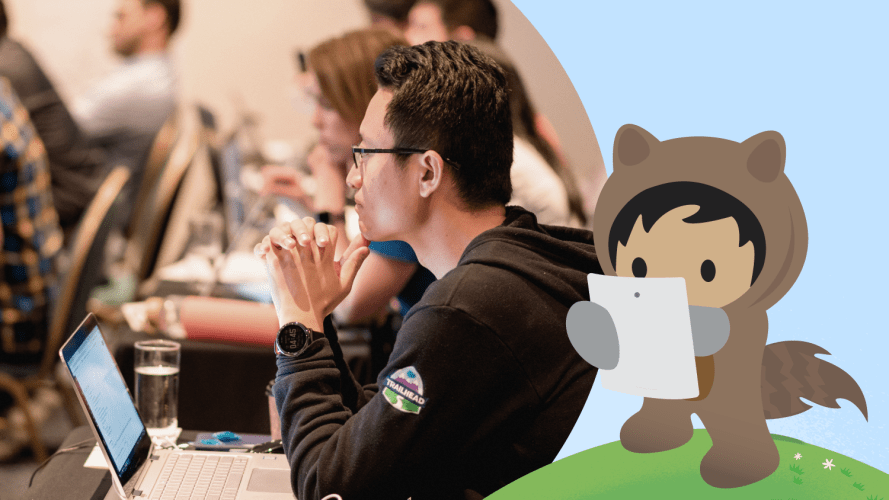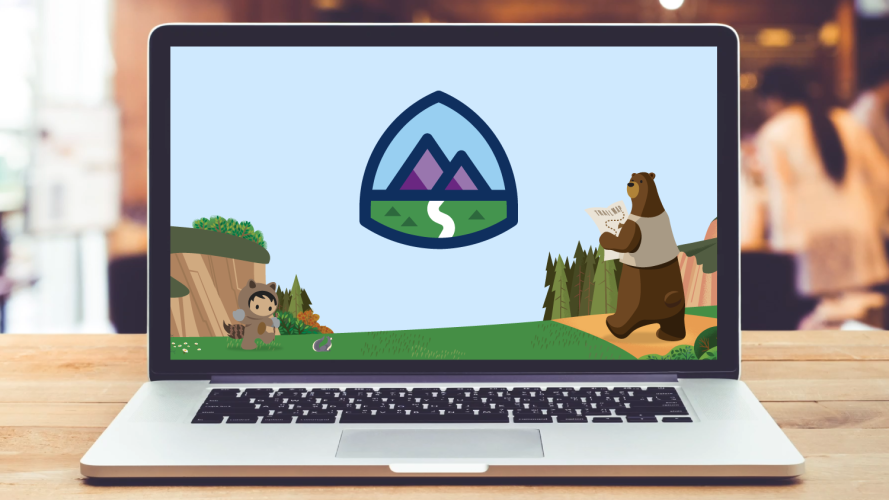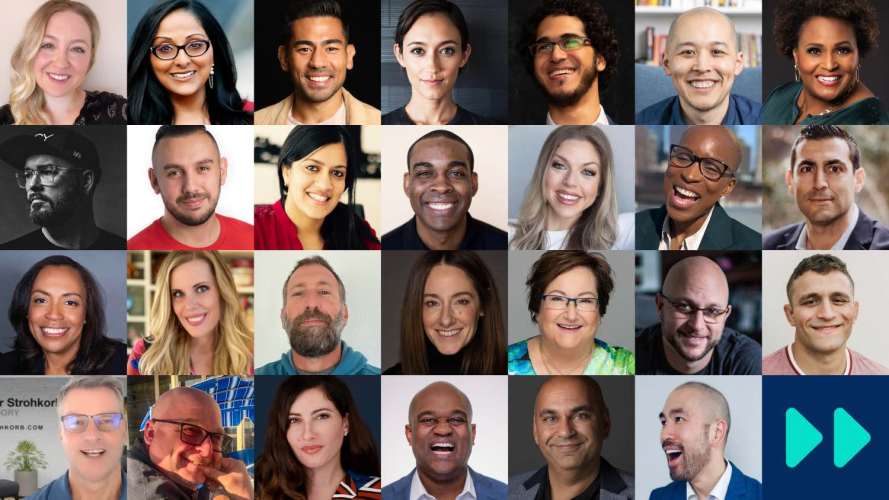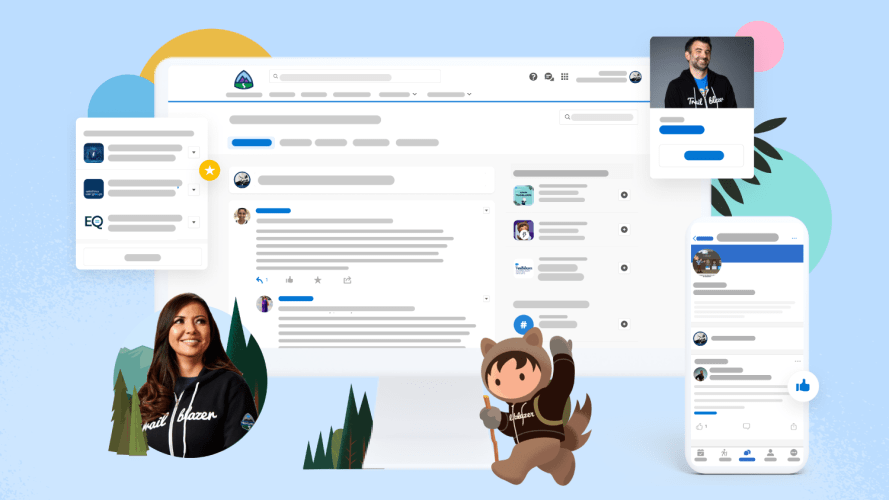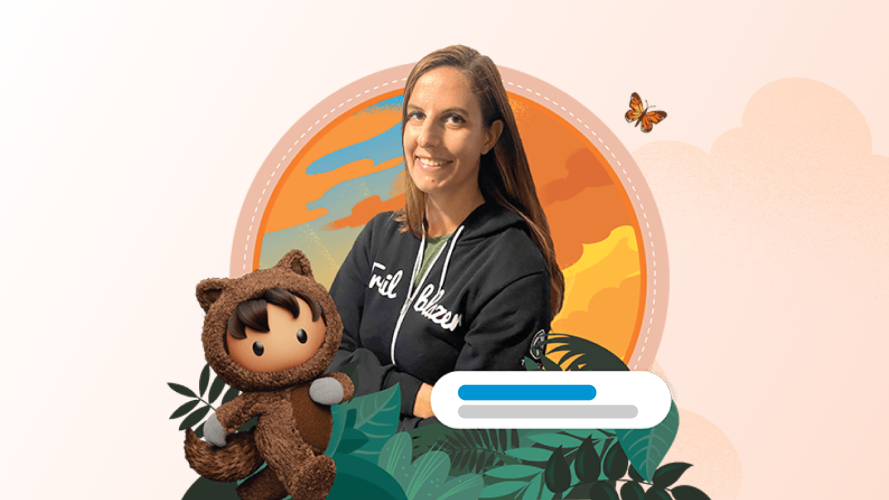Higher Education’s Big Pivot – Giving Students the Skills Employers Value



Some schools are introducing innovative tech-focused programs to give students skills employers actually want. Industry should take notice, and get involved.
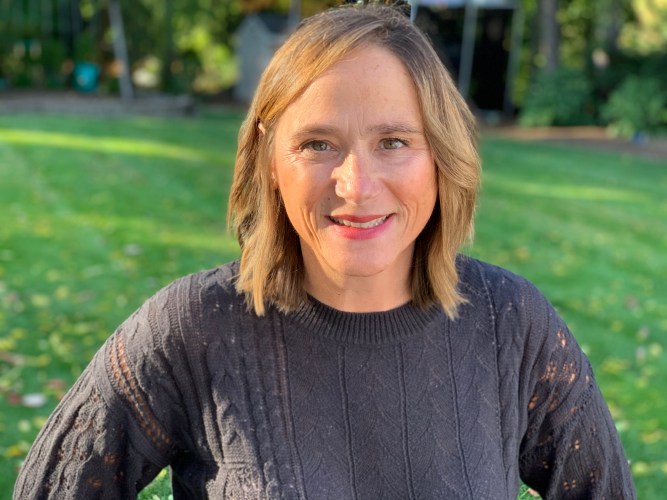
Lisa Lee
Few industries are as ripe for reinvention and transformation today as higher education. The average annual cost of a four-year college in the U.S. has tripled in the last two decades to more than $35,000, which has sent student debt skyrocketing and led many to question the relative value of a degree. Even those in the profession, like author and New York University professor Scott Galloway, have been outspoken about the lack of innovation in higher ed relative to the soaring costs.
“Higher education in the U.S. has unfortunately devolved from being the great upward lubricant of unremarkable kids to an enforcer of a caste system where we have decided to increase tuition by 1,400 percent,” he said on Salesforce’s Blazing Trails podcast.
Against this backdrop, some pioneering schools are rethinking their programs altogether: some are using learning platforms from companies like Salesforce to impart in-demand skills, and others are introducing specific certificate programs to give students the skills they need to succeed in fast-growing markets.
The thinking is to focus more on outcomes-based education, the specific skills students need to meet life and career goals. This pivot could solve the mounting questions about the value of a degree and create a more robust pipeline of employees ready to hit the ground running with sought-after skills.
Do you have the digital skills required in today’s economy?
It’s a common assumption that developed countries and younger workers feel more prepared for the digital skills required today. But in fact, many respondents in a new global survey say they are unequipped and unprepared for some of the most important digital skills needed for the workplace.



EDUCAUSE, a nonprofit advancing higher education through the use of technology, says that “the current education-to-workforce ecosystem results in skills being undermatched and/or mismatched for potential employment opportunities.”
Matching curriculum to industry demand
One of the schools trying to eliminate the mismatch is University of Massachusetts Lowell (UML), a public institution 30 miles northwest of Boston. Its Manning School of Business was one of the first in the U.S. to give undergraduate and graduate students marketable, in-demand skills through Trailhead, Salesforce’s free online learning platform.
The program may remedy these concerns by preparing students for a career in the mushrooming Salesforce ecosystem. Salesforce and its partners will create 9.3 million new jobs and $1.6 trillion in revenue in the worldwide economy between 2021 and 2026, according to new research from International Data Corporation (IDC).
Meanwhile, companies are increasingly relying on learning platforms to navigate their digital transformations; 84 percent of IDC survey respondents at companies using Trailhead say the curriculum is important to their organization’s deployment of cloud solutions, and 44 percent said it’s “critically” so.
UML’s learning platform champion, Tony Gao, associate professor of marketing, has kept his finger on the pulse of in-demand skills, having undertaken extensive and ongoing CRM training himself.
Survey findings reinforce this approach. Emsi, a market analytics firm, found in April that students are more interested in acquiring marketable skills than transcripts. Some large employers, like State Street, Hilton, Merck, and IBM, are hopping on the skills train by rethinking degree requirements for some jobs.
Galloway advocates for universities to partner with industry to create an onramp for students.
“We need to unbundle the university experience and [recognize that] some students don’t have the time, the resources, and the inclination to go hang out at college for four or five years, but they want to understand CRM,” Galloway says. “If you [acquire] those skills, and have the means of getting CRM certified, companies will hire those kids.”
Employers need to rethink recruitment
The Interoperable Learner Record, an initiative put forth by the National Student Clearinghouse, the U.S. Department of Commerce and others, documents the whole of a student’s achievements — not only their grades but milestones in school, work, apprenticeships and other areas of life including certifications. The goal is to more accurately reflect a student’s skill set, enable students to better manage their education, and to match competencies to an employer’s needs.
UML isn’t the only school upending its curriculum to provide practical training. And these in-university programs aren’t just about CRM. Liberal arts schools including Stonehill College, University of Montana, Sacred Heart University, and Clark University now offer certificates and training in areas of high value to employers: cyber security, coding, data science, photonics and radiography.
Universities have partnered with industry for years on research and development. Now, in a furthering of this symbiotic relationship, some are synching to prepare students for careers in burgeoning industries. One example, the University of New Mexico is partnering with Green Flower, a marijuana consultancy, for a certificate program to prepare students for a career in this highly regulated industry.
While some schools disrupt their learning models to adapt to industry needs, employers, too, should rethink their recruitment processes to partner with the right colleges and universities. This can help them connect with a pipeline of talent that’s perfectly suited to help them sustain growth and innovation.
How? According to John Hall, co-founder and president of calendaring service Calendar.com, companies need to identify where their talent comes from, including which degree programs and schools have filled their ranks. Then, build bonds with the schools, programs and most talented students.
“You won’t have to spend as much time training people once they join your company,” he wrote in Inc. “Identify where a high-potential university needs value, and look for ways to deliver it. You’ll probably get even more out of the partnership than the school does.”
UML was at the forefront of empowering students, having started its program in 2017 when Gao, a pioneering faculty member, taught one marketing class. Now there are six faculty members teaching 10 different courses, with about 600 students enrolled annually. At least three other universities, Indiana University, University of New Mexico, and University of Kentucky, have since modeled their own programs on UML’s, Gao said.
Business school programs have evolved over the years, but the foundational coursework — finance, marketing, accounting, leadership, economics, operations, and ethics — has remained largely unchanged and is somewhat commoditized from school to school. Finance is finance no matter where you learn it, after all. What’s transformational for students is unique programming like UML’s.
The impact of innovative education
Kelly Michal Skelton is a 2019 graduate of UML’s MBA program, which he says has transformed his career and life trajectory. As a graduate student, he was on a path for a conventional marketing career, perhaps in digital advertising. Instead, he acquired enough sought-after skills in CRM that he was offered a job with a small company before graduation, helping execute a migration from Microsoft Dynamics to Salesforce.
“There are very few situations when you’re preparing [to start your] career, where you can show an employer something meaningful,” he said. “I had hands-on experience without the work experience. I’m so happy I went down this path, because it would have taken me a lot longer to get to where I am. It’s transformed my life in all the ways that matter.”
Brittany Morris was first exposed to agile methodologies — an interactive approach to project management and software development — via Trailhead at UML in 2017, and immediately knew that’s what she wanted to focus on for a potential career. Now, as a technical project manager at American Express, she’s an agile champion, coaching marketing teams to apply the concepts of agile development to modernize Amex’s marketing platforms.
The learning platform at UML enabled her to personalize and customize her education path based on her preferences and interests.
“I want to focus on things that bring me joy, and I never had an agile training course that was boring,” Morris said. “Trailhead guided me toward training that I found enjoyable, and that has influenced my career.”
Asynchronous learning, of course, has existed for years and became mainstream by virtue of the pandemic. The depth of education transformation championed by Gao, though, goes beyond digitizing presentations and recorded Zoom lectures.
It’s disruptive and transformational in how it leverages technology to not only give students the twenty-first-century skills they need, but also to put power in the hands of students so they may chart their own destiny.
Sourcing: IDC White Paper, sponsored by Salesforce, “The Salesforce Economic Impact,” doc #US48214821, September 2021

